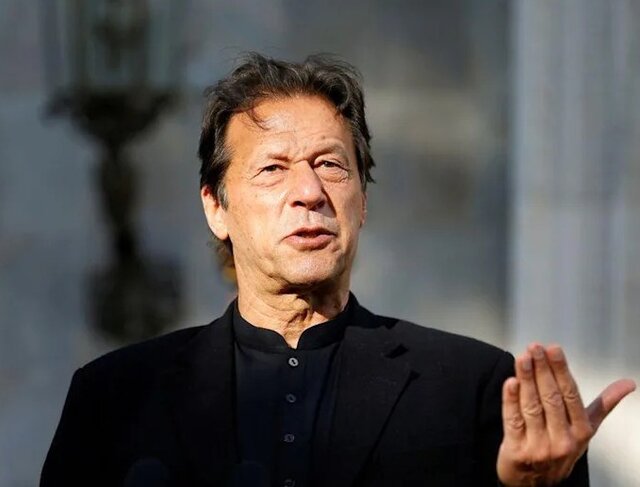Mohsen Rouhi Sefat in an interview with the site of Strategic Council on Foreign Relations referred to the failure of Imran Khan impeachment project and dissolution of Pakistan’s parliament. He noted:” although there is parliamentary system in Pakistan but during its lifetime, 60% of authority was handled by political parties and 40% by military personnel; therefore, political developments as such in the country is not something unprecedented”.
He added:” there have always been periods when political parties took power through parliament, it was army behind the scene who played an important role in internal and external policy, particularly in relations with the U.S., India, Afghanistan and Saudi Arabia. Whenever, there was a dispute between the government elected by the people and took the office from one hand and the army from the other hand, it was army who played role that could lead to the fall of the government and or driving another party to the power; and in some cases the Army itself took the power directly”.
Having stated that differences of opinion between the elected governments and the Army have provoked tensions and instabilities in Pakistan, the analyst of international affairs said:” When Imran Khan candidate himself to take the vote of confidence, the Army put its weight behind him. Previously, Imran Khan or Justice (Insaf) Party had a very small number of seats in Parliament; but the Army wanted to get rid of Muslim League and Pakistan People Party who always formed the government in Pakistan; therefore, the third party was put forward”.
Emergence of Dispute between the Army & Imran Khan
Rouhi Sefat continued:” Now, three years after a conciliatory relation between the Army and Imran Khan was established, disputes on internal and external issues have been emerged between them. One of the issues that has always been the source of disputes, was the appointment of Director of Pakistan Military Intelligence Organization. The Organization has an important role in the game of political parties inside the country and particularly with issues relevant to Pakistan and India”.
He added:” some analysts believe that the Army wants to play a more obvious role in politics and leave the backstage, or it may wish to bring Imran Khan under pressure to prepare the stage for a rival party to take power and if conditions are met, the Army can play a direct role in the authority”.
West’s Dissatisfaction of Pakistan over Ukraine
The former diplomat of our country continued to elaborate the most important reasons of political tensions in Pakistan, and referred to the consequences of Ukraine war and explained:” After the Russian invasion of Ukraine, the conditions of a new cold war have ruled over the world and every bloc tries to recruit its allies towards itself. The U.S. expected Pakistan, as an old friend and ally, to play in the U.S. ground against Russia in this cold war; but what happened was that the first foreign official who paid a visit to Moscow after the Russian invasion of Ukraine was Imran Khan, and he did not cancel his pre-planned visit”.
Having stated that Pakistan tried to take a balanced position between the parties involved in Ukraine war which was not an acceptable position for the West, he said:” Pakistan was officially recognized as an ally in the West’s bloc, and the Western countries used to accord a lot of assistance to the country and they still do the same”.
U.S. Effort to Destabilize Iran’s Eastern Borders
Having said that there is an analysis which believes with its departure from Afghanistan, the U.S. does not want to witness a stable region, Rouhi Sefat explained:” despite stability in the region, the U.S. competitors like Russia, China and Iran will seize the appropriate opportunity to strengthen themselves, therefore, instability can flow over Pakistan from Afghanistan and make the Eastern borders of Iran unstable. Thus, all three countries of Iran, China and Russia will lose”.
He continued to comment in connection with realization of such tensions and instabilities in Pakistan and noted:” the opposite parties wish the same aspirations for Pakistan but there are obstacles to realize their aspirations. For example, the Pakistani Army can prevent such instabilities, because Army’s interests are not secured with instability. Yet the Army lacks its previous position, and is obliged to engage itself with some elements inside the country instead of confronting the external assault along borders”.
Rouhe Sefat pointed out the infiltration of Pakistani Taliban in different regions of the country and also recent Balouchi movements followed by unrests and said:” Although the Pakistani Army has unwantedly been engaged in domestic clashes, but it is still solemn and awesome enough to prevent instability in the country. Yet, we may witness important developments in Pakistan within the coming 90 days. An early quite election may be held in the country in which Imran khan will be re-elected and or following some unrests, a military coup will be formed in the country”.
Having stated that Iran has also high vigilance as well as proper security and intelligence authority in the region, the expert of international issues referred to the necessity of Iran’s activity in economic fields along its Easter borders and added:” We witness a trend in the region through which our neighbors are moving towards instability. The instability may be extended to the North of Afghanistan which in turn, requires the vigilance of and a change in Taliban’s praxis. But, unfortunately, we have not witnessed any effective measure by them so far.










0 Comments